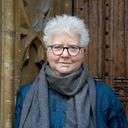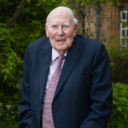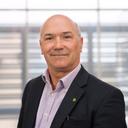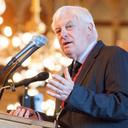ALUMNI STORIES: 'DON’T THINK, JUST DO – ACTION DRIVES CHANGE'

ALUMNI STORIES: 'DON’T THINK, JUST DO – ACTION DRIVES CHANGE'
Lucy Lyons (Regent's Park, 2021) shares her journey to co-founding Kestrix and transforming energy efficiency with drones
Published: 11 December 2024
Author: Tiya Muluzi
What inspired you to study at Oxford?
An interest in the theories of change proposed by academics in the Smith School –namely Ben Caldecott’s work on sustainable finance – led me to apply to the MSc in Sustainability, Enterprise, and the Environment at the Smith School. More broadly, the paradox of studying this MSc at Oxford was always alluring to me – I loved the idea of studying a new discipline (the course was in its first year at the time) in an institution hundreds of years older than even the country I was born in (USA). When we collectively have so much to learn from history, being steeped in it felt oddly appropriate for thinking about solving 21st century problems.
Can you walk us through your journey from completing your MSc to co-founding Kestrix? What inspired this venture?
During my time at Oxford, I was involved in several entrepreneurship initiatives, including winning the first prize in the Angel Incubator accelerator, which gave me a small grant and indeed the confidence to work on my startup. I spent the following summer validating my concept through my dissertation, though I ultimately realised the idea I was working on wasn’t quite the right one. Despite this, I was still inspired to pursue entrepreneurship, so and I joined Carbon13’s climate tech venture builder in Cambridge, where I met my co-founder Matt Goodridge (Worcester, 1997). We launched Kestrix after recognising that companies lack the data needed to decarbonise buildings. Kestrix provides a faster, scalable way to collect data on heat loss to devise energy retrofit plans, starting with the social housing sector.
Your approach with Kestrix has been described as a the 'Google Maps of heat loss.' Can you explain this concept?
Yes, we commission thermal drone flights over whole neighbourhoods and map where the heat leaks in 3D, as well as estimate heat loss quantitatively. This data is then used to devise retrofit plans for buildings. It’s kind of like the automated, non-invasive energy survey – or the energy survey from the sky. Our vision is to map the whole of the UK and beyond and become the data powering the built environment’s climate transition.
What has been your biggest challenge in setting up Kestrix?
Building and retaining a world-class team and excellent, healthy co-founder relationship has been our biggest challenge, but also our most significant achievement. We are immensely proud of the team of 12 engineers, scientists, operations and housing industry experts we have brought together to tackle this challenge.
Could you share a moment or project from your work that you’re particularly proud of?
We recently confirmed our largest ever project, where we will be surveying a total of 6,250 homes in Coventry. This will be in partnership with E.ON and Coventry City Council, and will help ensure grants for fuel poverty alleviation go to the homes most needing assistance. I’m excited about it because if successful, the project will make a real, measurable difference in thousands of peoples’ lives and drive real decarbonisation outcomes.
As someone recognised in the Forbes 30 under 30 list, what advice would you give to aspiring entrepreneurs in the sustainability sector?
Especially for Oxford students who have a tendency towards perfectionism – don’t think, just do! In the early stages of a startup, it’s all about a bias towards action – ship a product that isn’t perfect, get feedback, and iterate. Pitch even when you are not sure you are ready because it will challenge you and make you better. Just make sure to ask for advice and help along the way, and always ask yourself ‘how can I be better today?’
Do you have any tips for Oxford students and alumni who are passionate about sustainability and looking to make a difference in the field?
There is power and privilege in working on a cause you care about. While the climate problem can feel daunting, using your career to drive the change you want to see in some way can be immensely gratifying.
What’s next for you and Kestrix?
2025 will be a big year for us – in January we will go out for a round of investment to grow our team and accelerate growth in terms of customers we take on board and homes we map. We will focus especially on continuing to build relationships in the social housing and energy sectors, as healthy bonds here are critical to scaling our impact over the next 5+ years.
How has your time at Oxford helped you in your journey?
At Oxford you are taught by world class academics, but I found I learned as much from the peers around me as those at the head of the room. By surrounding me with brilliant classmates, Oxford helped me define and refine my own worldview.
What do you miss about Oxford?
Oxford is a place where people have the time of day to sit and debate, listen, and discuss. Whether in a lecture theatre or at a pub, I miss this constant formal and casual exchange of ideas most.
Find out more about Kestrix






































